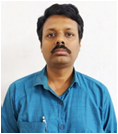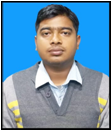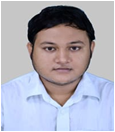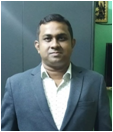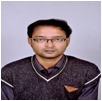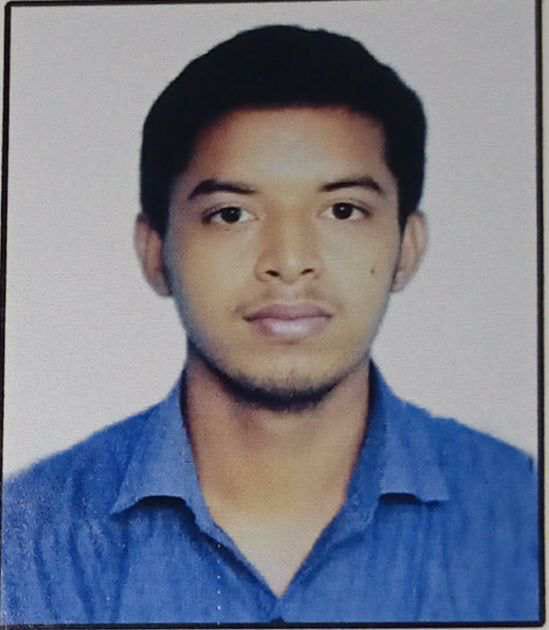Infrastructure
Mechanical Workshop and Laboratories
Major Laboratories:
-
Applied mechanics lab (Izod Impact testing M/C, Brinell & Rockwell hardness testing M/C, UTM, TTM, Screw Jack, Worm & Worm Wheel, Single Purchase crab winch, etc.
-
Thermal Lab (Shell & Tube Type Heat Exchanger Test Rig, Separating & Throttling Calorimeter Apparatus, Air Compressor Test Rig, Model Of Boilers, Pressure Gauge, Model Of Steam Engine, Model Of Power Plant Layout, Air Compressor, Bomb Calorimeter, Model of Air Compressor, Solar Water Heater, Thermal Conductivity Test Set-Up, Model of Heat Exchanger, Model of Steam Turbine, 2 Stroke Petrol Engine, Model of Jet Engine, Model of Steam Condenser, 4 Stroke Diesel Engine Test Rig, Model Of Gas Turbine)
-
Fluid M/C And Fluid Power Lab (Pressure Gauge, Venturimeter/Orifice Meter, Pitot Tube Setup, V-Notch/Rectangular Notch, Reciprocating Pump, Centrifugal Pump, Model Of Pelton Wheel, Bernoullis Apparatus, Pneumatic Trainer Kit)
-
Metrology lab (Outside Micrometer, Inside Micrometer, Vernier Calliper, Bore Dial Gauge, Bevel Protactor, Sine Bar, Gauge Block Set, Vernier Height Gauge, Gear Tooth Vernier Calliper, Feeler Gauge, Screw Pitch Gauge)
-
Strength Of Material And Engineering Mechanics Lab (Friction Plate Setup, Screw Jack, Single Purchase Crab Winch, Worm & Worm Wheel Setup, Jib Crane, Concurrent Force Table, Universal Testing M/C, Torsion Testing M/C, Brinell Hardness Testing M/C, Rockwell Hardness Testing M/C, Izod/Charpy Testing M/C)
-
AutoCAD lab (60 nos of computers with latest AutoCAD version installed).
-
Elective Lab: Omni cut section, Air Conditioning Test Rig, Maruti 800, etc.
-
Drawing-Hall (2 nos)
Major Workshops:
-
Machine shop (CNC Lathe, Big Lathe, Small Lathe, Drill M/C, Bench Grinding M/C (Model Pbg-1), Surface Grinder, Milling M/C, Shaping M/C, Slotting M/C, Power Saw )
-
Fitting shop (Vice Surface Plate, Height Gauge, Radial Drill M/C, Electric Drill M/C)
-
Welding shop (Arc Welding M/C, Spot Welding M/C, Tig Setup, Arc Welding M/C With Rectifier, Gas Welding Setup)
-
Carpentry (Jig Saw, Band Saw, Wood Turning Lathe, Wood Planner M/C, Circular Saw, Vice, Mallet)
AUTOCAD LAB
Auto CAD software is being there at various industries for many years but still it has the same importance. It helps architects, designers and engineers to create designs and test the same, before spending money, labour or time. People in manufacturing understand the importance of technical drawing. Good technical drawings can often reduce the risk of significant delays in production.
- It improves productivity
- It helps the student visualize their final product and see how it will work
- The quality of the design dramatically improve
- The software helps the user to create documentation for their design (documentation means everything from the materials to be used to components and specification.
-
DEBAJYOTI MUKHERJEE
Assistant Professor
Qualification
M.TECH (ME), Ph.D. (Pursuing)
Experience
15 year 11 month 12 day
-
SAURABH DAS
Assistant Professor
Qualification
B.TECH (ME)
Experience
15 year 11 month 12 day
-
SK AMINUL ISLAM
Assistant Professor
Qualification
B.TECH (ME)
Experience
15 year 7 month 30 day
-
SOUMYA KANTI MANDAL
Assistant Professor
Qualification
B.TECH (ME)
Experience
12 year 5 month 4 day
-
SUVADIP SUKUL
Assistant Professor
Qualification
M.TECH (ME)
Experience
11 year 7 month 22 day
-
Dr. RITWIK DAS
Assistant Professor
Qualification
M.TECH (AMST), Ph.D in Engg.
Experience
3 year 5 month 7 day
-
SAUMYA SINGHA
Assistant Professor
Qualification
M.E. in Mechanical Engg.
Experience
1 year 9 month 27 day
-
BIPLAB BARMAN
Assistant Professor
Qualification
DME, AME (SEC A & SEC B)
Experience
17 year 9 month 10 day
-
SOUVIK JANA
Assistant Professor
Qualification
B.TECH (M.E.)
Experience
1 year 10 month 8 day
-
ABHISHEK BAG
Assistant Professor
Qualification
M.Sc. (Chemistry), Ph.D. (Pursuing)
Experience
16 year 4 month 11 day
-
ANUPAM SAMANTA
Assistant Professor
Qualification
M.Sc. (Physics), B.Ed.
Experience
14 year 3 month 12 day
-
RAMPADA JANA
Assistant Professor
Qualification
M.Com, B.Ed., PGDBM
Experience
15 year 11 month 12 day
-
MANOJ MISHRA
Assistant Professor
Qualification
B.TECH (ME)
Experience
9 year 10 month 12 day
-
SUVABRATA PANDA
Assistant Professor
Qualification
B.TECH (M.E.)
Experience
4 year 3 month 11 day
-
SAIKAT KARAN
Assistant Professor
Qualification
B.TECH (ME)
Experience
10 year 8 month 3 day
-
SAHABAZ KHAN
Assistant Professor
Qualification
B.TECH (ME)
Experience
3 year 0 month 11 day
-
ABHIRUP LAHIRI
Assistant Professor
Qualification
B.TECH (ME)
Experience
1 year 11 month 8 day
-
MANORANJAN SAHOO
INSTRUCTOR
Qualification
DIPLOMA (M.E.)
Experience
15 year 9 month 6 day
-
RISHAVDEV SINGHA
INSTRUCTOR
Qualification
DIPLOMA (M.E.)
Experience
6 year 6 month 29 day
-
SUMAN HALDER
INSTRUCTOR
Qualification
Diploma in Mechanical
Experience
1 year 9 month 28 day
-
BRINDABAN DAS
TECHNICIAN
Qualification
ITI ( FITTER)
Experience
15 year 6 month 4 day
-
SANTOSH SHARMA
TECHNICIAN
Qualification
ITI (CARPENTER)
Experience
15 year 3 month 23 day
-
NARAYAN CHANDRA MONDAL
TECHNICIAN
Qualification
NCVT (WELDING) and CRAFT INSTRUCTOR (WELDING)
Experience
12 year 3 month 9 day
-
SANTANU KHATUA
TECHNICIAN
Qualification
ITI Machinist, Craft Instructor Machinist A.T.I.
Experience
7 year 9 month 23 day
-
HAREKRISHNA DAS
TECHNICIAN
Qualification
ITI IN MAINTENANCE MECHANIC
Experience
2 year 7 month 12 day
-
BIJOY DAS
TECHNICIAN
Qualification
ITI IN MAINTENANCE MECHANIC
Experience
1 year 5 month 12 day
Notice
-
13
Dec
2023 -
17
May
2023 -
01
Oct
2019 -
02
May
2019 -
21
Sep
2018 -
03
May
2018 -
21
Sep
2017
Seminar
-
10
May
2025 -
04
Nov
2020 -
04
Jan
2020 -
27
Oct
2019 -
26
Oct
2019 -
04
Oct
2019 -
04
Oct
2019 -
15
Sep
2019 -
25
Aug
2019 -
29
Apr
2018 -
15
Apr
2018 -
04
Mar
2018 -
03
Sep
2017 -
23
Apr
2017 -
12
Feb
2017
Download
-
01
Jul
2023 -
29
Jun
2023 -
29
Jun
2023 -
28
Jun
2023 -
28
Jun
2023 -
28
Jun
2023 -
28
Jun
2023
Course Details
Diploma in Mechanical Engineering Course Highlights
|
Type of Course |
Diploma |
|
Duration of Course |
3 years |
|
Examination Type |
Semester wise |
|
Course Fee |
|
|
Average annual salary after completing the course |
INR 1,20,000 to 2,40,000 |
|
Top recruiting companies |
L&T, CY MUTECH, SIGMA, JK TYRE, POLYBOND, ADVIK, TAKATA, MANDO, ESSEL PRO PACK, FAURECIA |
|
Job positions in Industry |
Diploma Engineer Trainee, Operator Engineer Trainee etc. |
|
Job positions in Education Sector |
Lab Instructor |
Admission Process & Criteria:
Direct Admission (25% of Total Intake):
- Passed in Secondary (10th Std) or its equivalent examination with English, Physical Science and Mathematics and other criteria as per norms of WBSCT&VE&SD
Admission through Central Counselling (75% of Total Intake):
- JEXPO -2025 Rank and central counseling conducted by WBSCT&VE&SD.
Admission in 2nd Yr (3rd Sem) Lateral Entry (10% of Total Intake):
- VOCLET-2025 Rank and central counseling conducted by WBSCT&VE&SD.
Age Limitation: No upper age limit. The candidate should not be born after 01.07.2010
Diploma in Mechanical Engineering Course Syllabus:
| Semester I | Semester II |
|
|
| Semester III | Semester IV |
|
|
| Semester V | Semester VI |
|
|
Vision of the Department
To achieve excellence in Mechanical engineering by imparting technical knowledge & skills blended with attitude & behavior to meet industrial and societal requirements.
Mission of the Department
Mission 1: To offer quality education with supportive facilities to produce technically proficient engineers to serve industry.
Mission 2: To motivate students for lifelong learning and guide them to choose better career option.
Mission 3: To inculcate ethical & professional values among students with societal and environmental concern.
The strengths of the Mechanical Engineering Department are as follows:
-
The faculty members of the Mechanical Engineering Department are technically and academically sound and experienced..
-
Workshops and Laboratories of Mechanical Engineering Department are modern and well equipped.
-
We maintain the healthy environment for teaching learning process followed by prior knowledge, presenting new material, challenge, feedback and repetition.
-
Outcome based teaching-learning process is followed by the Mechanical Engineering Department.
-
Peer comparison uncovers that the placement record of Mechanical Engineering Department in various reputed companies is remarkable and up to the benchmark.
-
For the benefits of our students, the Mechanical Engineering Department conducts Soft Skill development and Technical Skill development programs with the help of Training and placement Cell.
-
In coordination with Training and placement Cell, Mechanical Engineering Department provides industrial training to our students in various reputed Training Industries.
-
To elevate the knowledge of faculty members and students about the recent upgraded trends of mechanical engineering trade, the Department organizes various Conferences and workshops frequently throughout the year.
-
To alleviate the curriculum gaps, Mechanical Engineering Department conducts workshops and lectures by experts from both academic and technical sectors.
-
We encourage our students and faculty members to attain MOOCs for betterment of their skill and technical knowledge.
Programme Educational Objectives (PEOs):
PE01: The students will get the job/employment opportunity in public or private sectors.
PE02: The students will execute their assignment effectively as individuals and team members in multi-disciplinary setup leading to a common goal.
PE03: The students will have a sound background to pursue higher study.
Program outcomes (POs):
|
PO1 |
Basic and Discipline specific knowledge: Apply knowledge of basic mathematics, science and engineering fundamentals and engineering specialization to solve the engineering problems |
|
PO2 |
Problem analysis: Identify and analyse well-defined engineering problems using codified standard methods. |
|
PO3 |
Design/ development of solutions: Design solutions for well-defined technical problems and assist with the design of systems components or processes to meet specified needs. |
|
PO4 |
Engineering Tools, Experimentation and Testing: Apply modern engineering tools and appropriate technique to conduct standard tests and measurements. |
|
PO5 |
Engineering practices for society, sustainability and environment: Apply appropriate technology in context of society, sustainability, environment and ethical practices. |
|
PO6 |
Project Management: Use engineering management principles individually, as a team member or a leader to manage projects and effectively communicate about well-defined engineering activities. |
|
PO7 |
Life-long learning: Ability to analyse individual needs and engage in updating in the context of technological changes. |
Program Specific Outcomes (PSOs):
PSO 1: The program must demonstrate that students can apply specific program principles to Design using CAD(2D), testing of various mechanical parameters & operation of different machines.
PSO 2: The program ensures students able to contribute in manufacturing or processing of products economically to meet the customer’s satisfaction.



